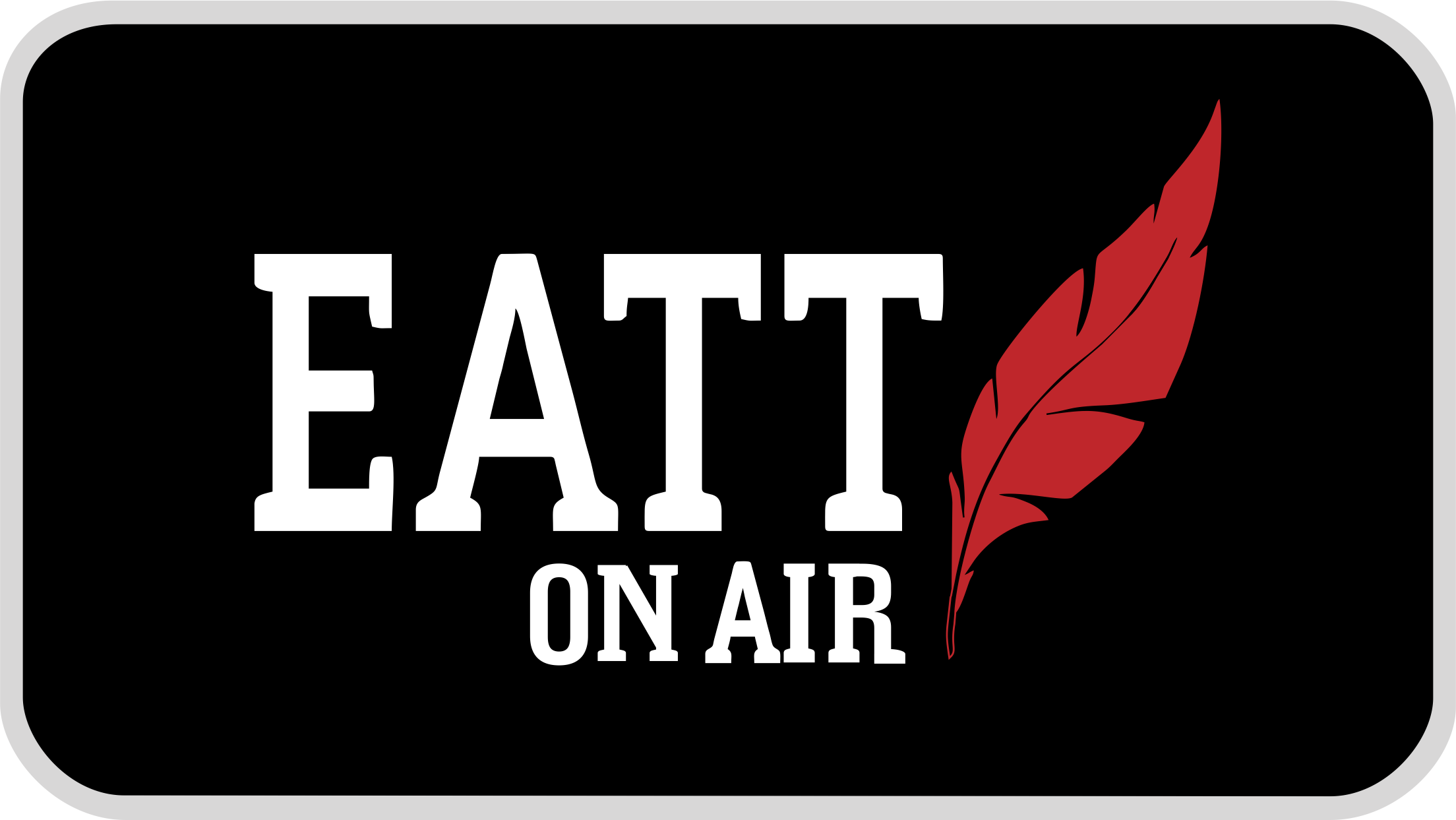How to make Tapa Prints
Podcast: Play in new window | Download
Subscribe: Apple Podcasts | RSS
How to make Tapa Prints?
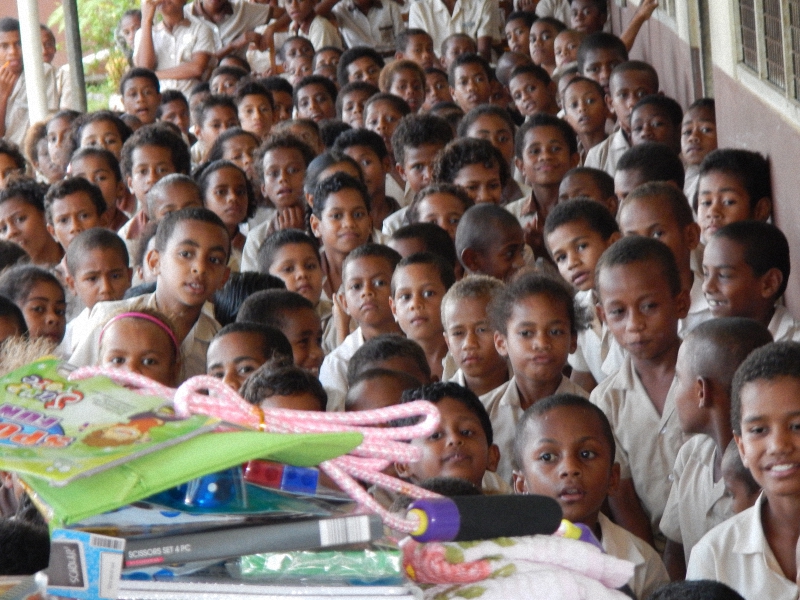
How to make Tapa prints with a Fiji Village. View the full images used in this podcast at https://eattmag.com/podcasts/how-to-make-tapa-prints/
Johken school students outside on a recent visit to the school
In part two of our Fiji village news story, we join Debra and her team bringing enough books, pencils, stationery, skipping ropes, footballs for the whole school of 230 students.
The children screamed with delight and all the new items they each got a pencil and rubbers and other learning aids.
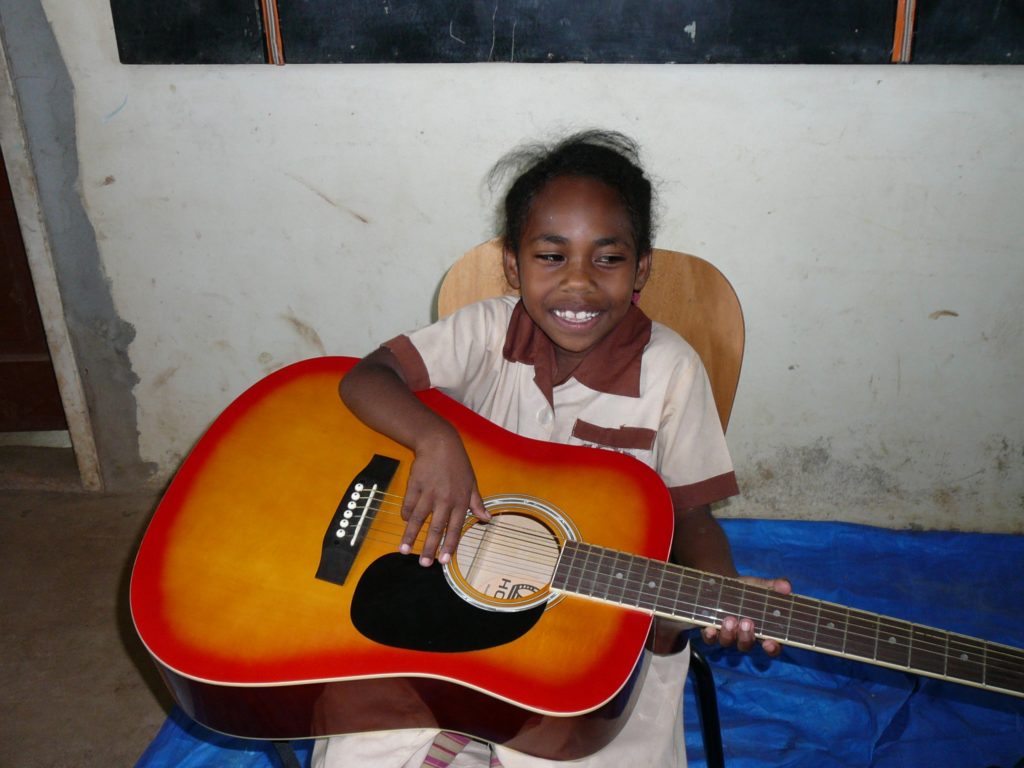
One of the children from the music school, learning guitar
When we asked who wanted to learn guitar this young girl put up her hand and grinned from ear to ear, “me miss, please, I would like to learn”we handed her the guitar and she found it nearly as big as she was but that made her more determined as she strummed away.
How to make Tapa Prints
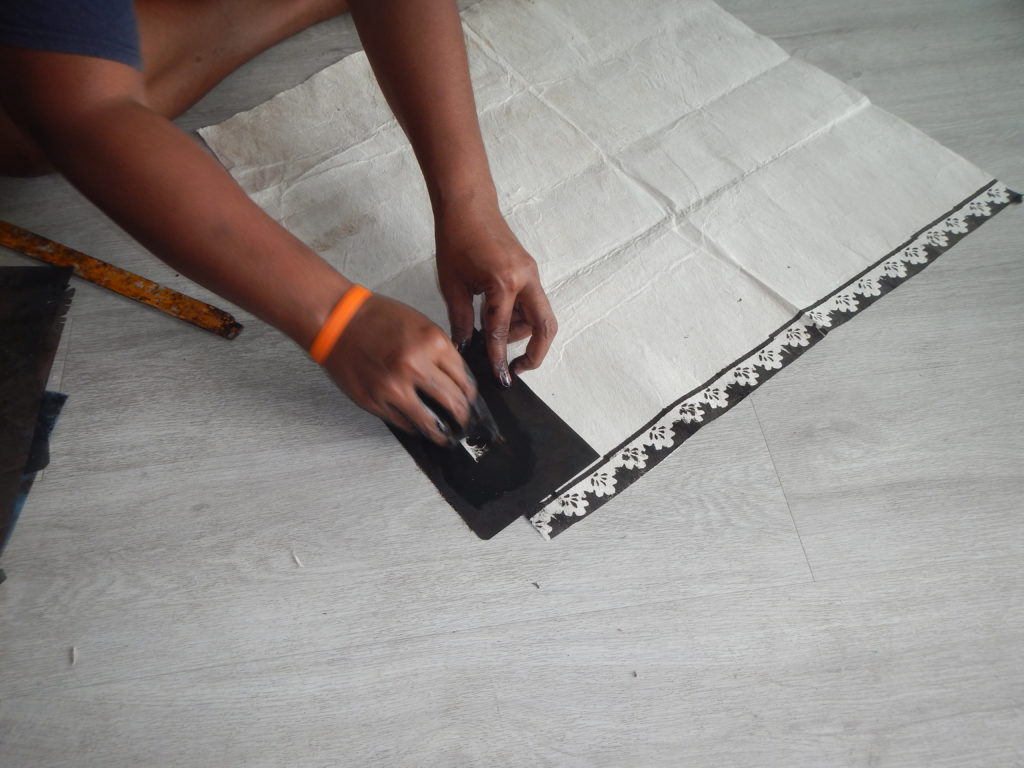
We were shown how the traditional Fijians print their designs on Tapa
Tapa printing is handed down from generation to generation.
All the prints tell a story of many journeys and endeavors in Fijian culture. Some are fishing stories, hunting and gathering food while some are decorative using their local designs and vegetation as print designs.
The stencils are made from old hospital X-rays and make the perfect flexible printing surface. Because they are waterproof surface does not bleed. In this example, we are starting with the border and working into the center.
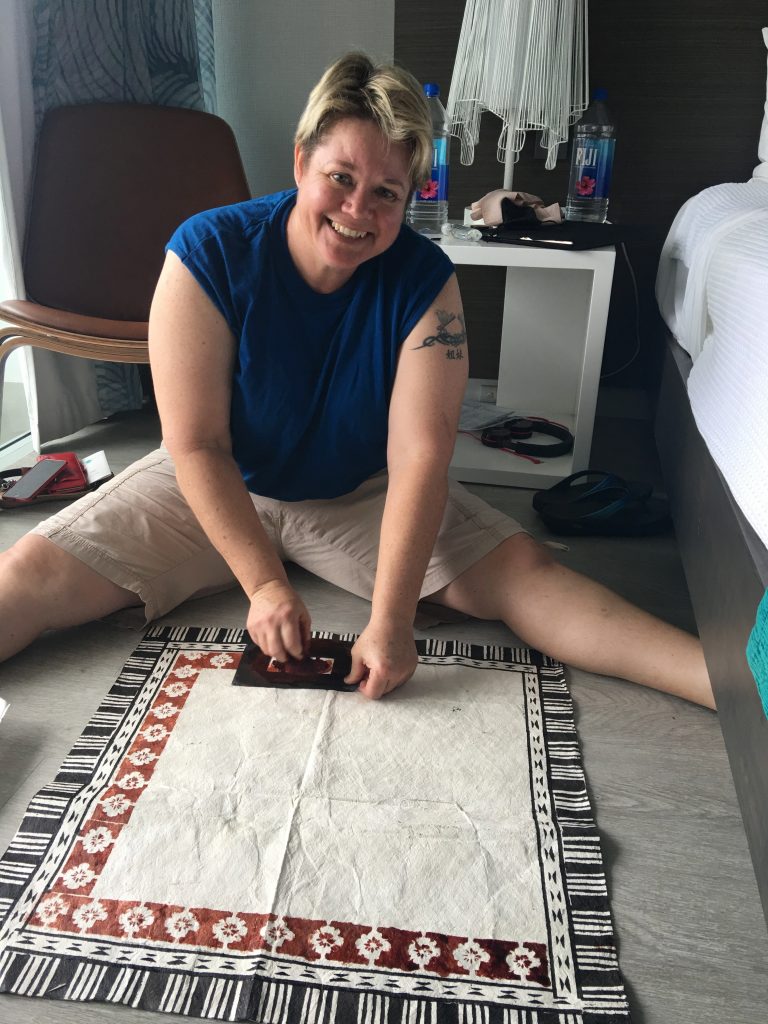
I had the privilege to learn a traditional Tapa printing style by local artist Buna Matewai.
Black and red colors are the two key colors used. The black is made from the ash, and the red is from boiling the trees that can create a kind of glue.
Sitting in my hotel room on the coral coast, we had arranged for my friend to come and visit me and teach me how to do her traditional Tapa printing. Buna turned up with a backpack full of her handmade inks and tapa, and the lesson began.
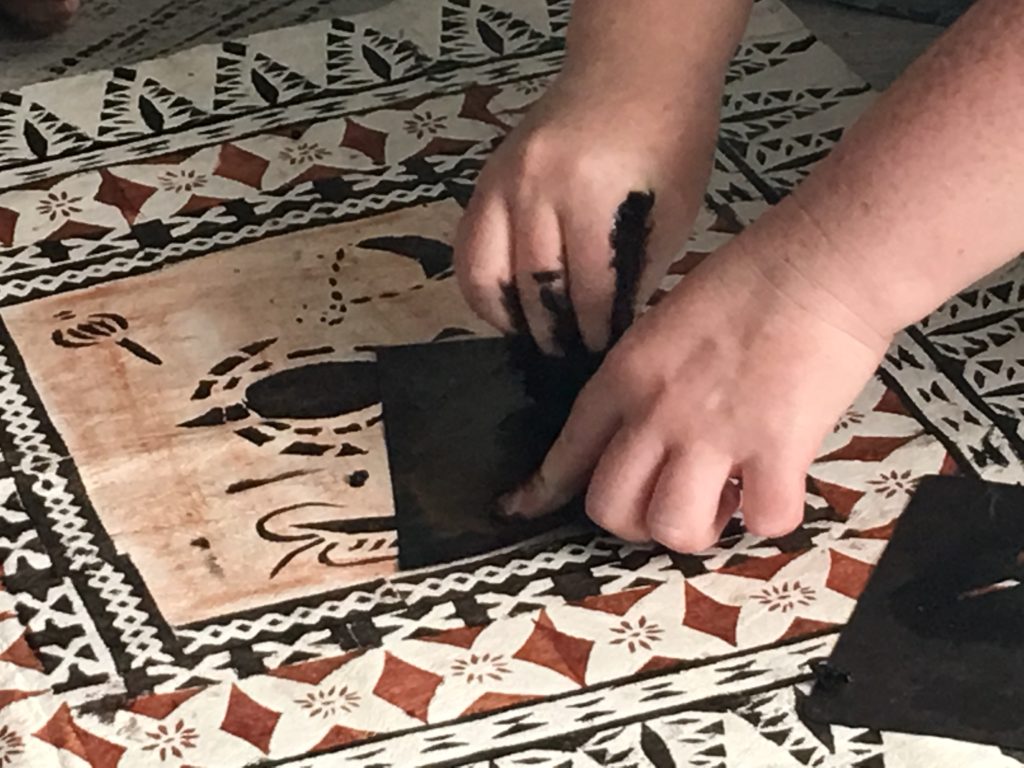
Tapa designs
This Story is one of many different print styles like water with a boat in the sea and land are vital parts of the story, that can often include flowers and fauna.
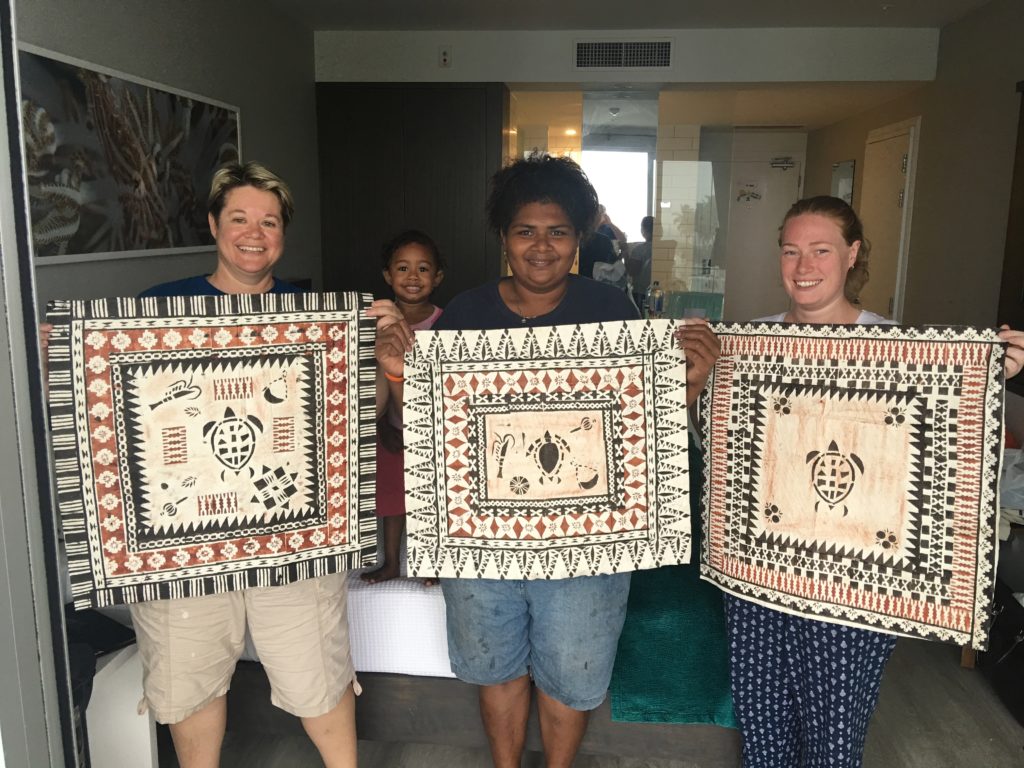
Final stages of a finished Tapa print
On the finishing stages of Tapa printing, our hands stained with charcoal ink and we were proud of our efforts using local designs from the sea and the village.
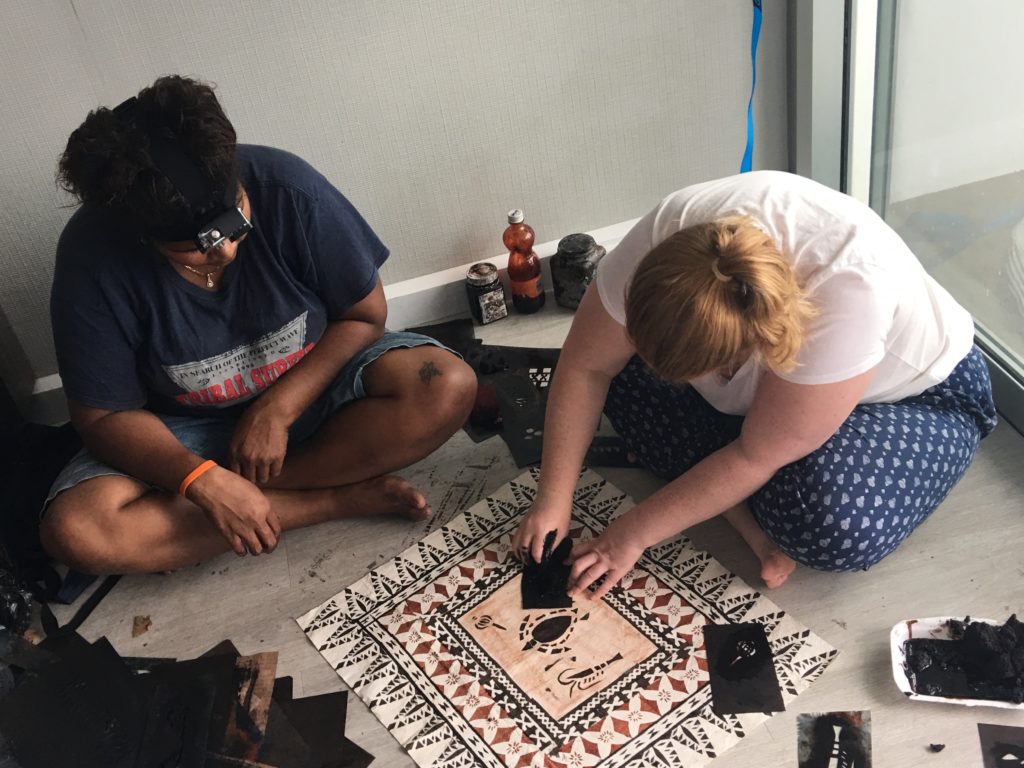
Debra’s tells a story of the turtle a key figure in many of the story’s and designs and the local tribal elements of gathering shrimp.
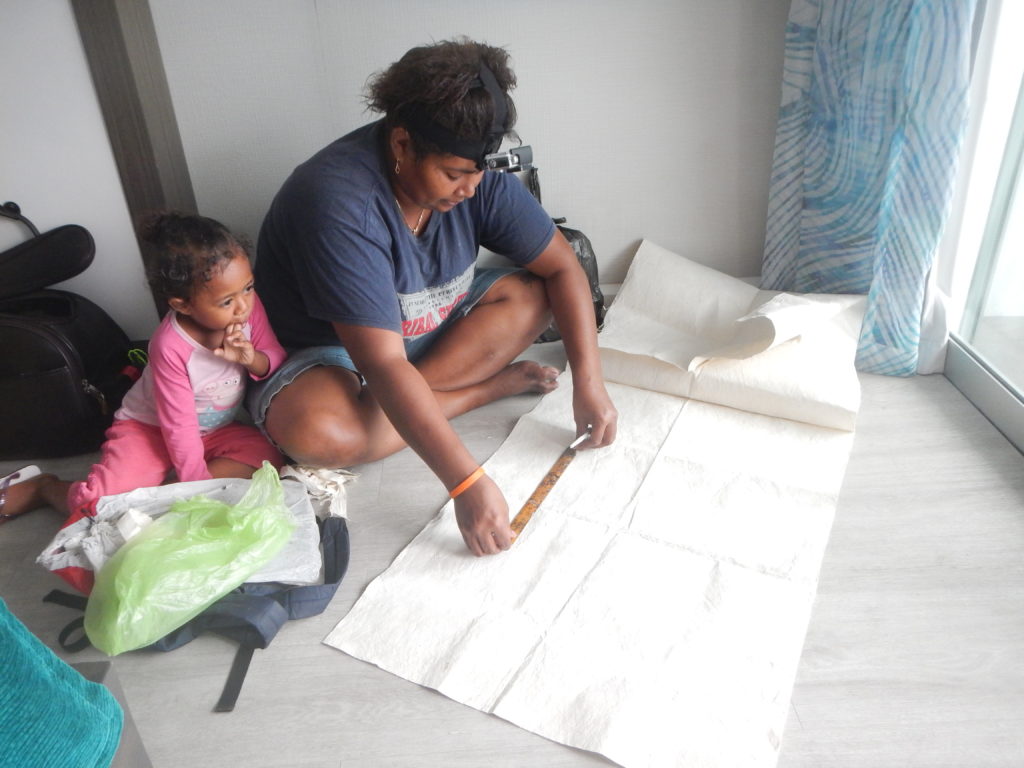
Thanks to Buna and her daughter Rosie for coming and visiting me and one of the other hotel guests who also was very proud of her design.
A sponge is used covered with black, and sea sponges are used, and these soak up the ink and use these to create the designs.
You can contact Debra here https://eattmag.com/marketing-contact/ If you would like to make a donation or support the team in some way.
Subscribe with us on iTunes https://itunes.apple.com/us/podcast/eatt-magazine-podcast/id975085668?mt=2&ign-mpt=uo%3D8
Stay in touch to catch the next podcast and download a bunch of podcasts for your next trip
Learn more about EATT Magazine
Download part 1
